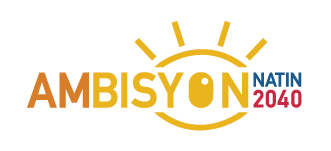Raadee S. Sausa (The Manila Times)
The National Economic and Development Authority (NEDA) said long-term planning approach is crucial to implementing government strategies for development, particularly those under the United Nations Sustainable Development Goals (SDGs) or “Agenda 2030.”
Agenda 2030 is an initiative of the United Nations to guide member-nations in addressing global challenges like extreme poverty and climate change through 17 SDGs.
“While the process of formulating development plans has grown more participatory over time, one common shortcoming in national planning is the lack of continuity. Not only are development priorities different each time an administration starts, but also the means of implementation are not always consistent,” Undersecretary for Planning and Policy Rosemarie Edillon was quoted as saying in a speech before the Association of Southeast Asian Nations (Asean) Ministers’ Workshop in Kuala Lumpur, Malaysia late last month.
Edillon joined other government representatives from Asean member-states in discussing the challenges in carrying out Agenda 2030.
“Adopting a sustainable development paradigm is a major governance reform. The framework for Agenda 2030 sees to it that each segment of society and each generation are accorded the best opportunity for development. However, the short-term planning horizon of governments could be the major obstacle to the successful implementation of Agenda 2030,” the NEDA official said.
“It is only with a long-term planning horizon that policies and programs can be seen through a sustainable development lens. The challenge, therefore, is to align short-term fiscal programs, medium-term development plans, with the long-term Agenda 2030,” Edillon added.
In early 2016, the NEDA conducted a nationwide survey that probed into the aspirations of Filipinos. The study revealed that Filipinos desire a comfortable lifestyle, a secure future, and time with family and friends. The results were translated into a national, long-term vision now known as AmBisyon Natin 2040.
AmBisyon envisions that, by 2040, the Philippines will be a prosperous, predominantly middle-class society where no one is poor. Filipinos will live long and healthy lives, be smart and innovative, and live in a high-trust society.
The NEDA has formulated the Philippine Development Plan (PDP) 2017-2022 with AmBisyon Natin 2040 at its core.
The PDP highlights the administration’s commitment to the principles of sustainable development, consistent with the goals identified in Agenda 2030.
Employers adopt SDGs
The Employers Confederation of the Philippines (ECOP) meanwhile approved a resolution adopting the SDGs during the 38th National Conference of Employers on Wednesday.
ECOP called for greater overall awareness of environmental problems brought about by climate change, and urged stakeholders to develop and implement “cutting-edge strategies” to mitigate the ill effects of climate change and transition toward greener business and jobs.
In order to alleviate economic inequality, stakeholders must find ways to address the skills mismatch, enhance industry-academe collaboration, develop “21st century skills” among the youth, promote gender equality, and provide greater opportunities for decent jobs and income, especially among the marginalized sectors, it added.
ECOP also called for government policies and infrastructure to attract more investments, encourage innovation and creativity, and leverage cutting-edge technology so that businesses can stimulate local economic development and create more decent jobs.
To ensure a more sustainable consumption, the government and industry must promote resource and energy efficiency, sustainable infrastructure and better access to basic services, it said.
